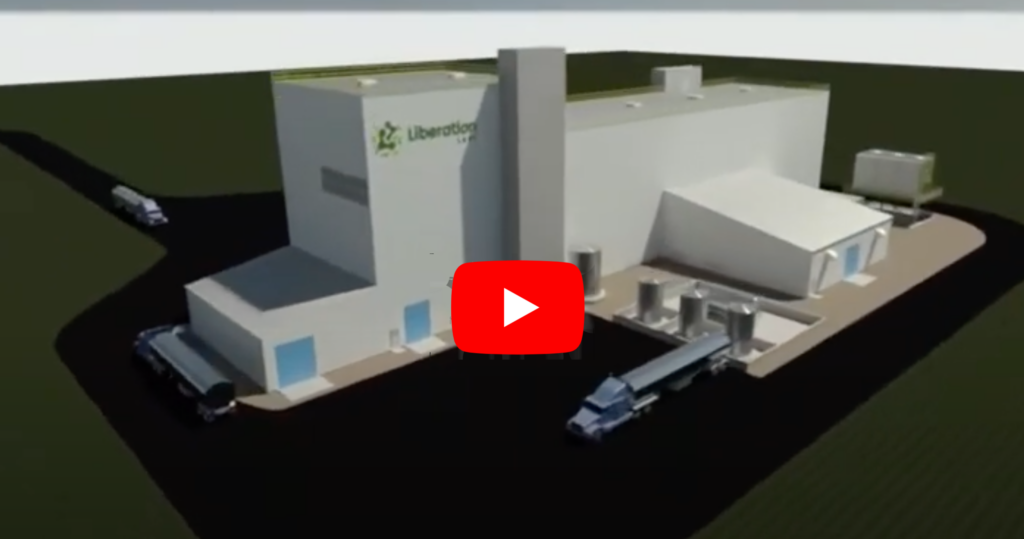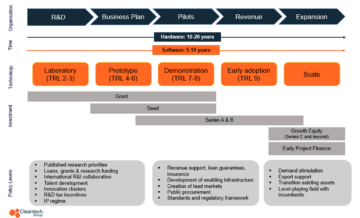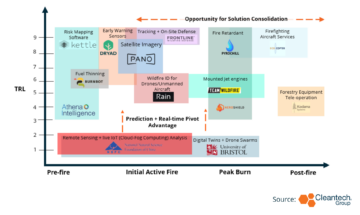Precision fermentation has the potential to solve multiple pain points for the growing alternative protein industry, as it can be used to produce an array of proteins, flavorings, colorants and other ingredients with far fewer resources than conventional agricultural and food processing techniques.
However, precision fermentation innovators face several significant operational and technological challenges that must be overcome before they can realize this potential. In this blog post, we’ll take a look at the main operational and technological obstacles for innovators and consider if progress is being made to address them.
Boosting Capacity
Scale is probably the major limiting factor for precision fermentation at present.
Many existing precision fermentation facilities have been designed with pharmaceutical production as a template and are not adequate for commercial-scale food production. The cost dynamics of pharmaceutical products mean that small equipment scales and high staffing levels are economical.
While such facilities can work for food R&D and pilot-scale food production, they do not fit the cost structure for commercially manufacturing food products at mass scale. Moreover, manufacturing facilities optimized for food production are limited in number, meaning that precision fermentation start-ups often have to compete for restricted capacity.
To overcome this hurdle, some contract manufacturers have recently begun to tailor offerings for precision fermentation start-ups. In some cases, this has included financing assistance.
At the same time, several new contract manufacturers have emerged that exclusively focus on serving the needs of precision fermentation innovators in the food sector; as well as consultancies helping these start-ups to scale their own in-house capabilities, and online tools to help them leverage third-party capacity.
Collaborative industry efforts such as the Precision Fermentation Alliance are catalyzing strategic partnerships in this area, while there have been several notable instances of government support for new fermentation facilities. One example is the United Arab Emirates’ backing for U.S.-based innovator Change Foods to construct a first-of-a-kind, commercial-scale production facility in the Gulf state, which will produce casein via precision fermentation for use in animal-free dairy alternatives.
Securing Feedstocks
Feedstocks provide nutrients for the microorganisms responsible for the fermentation process.
These feedstocks represent one of the key costs for precision fermentation, given the amounts that are needed.
From a sustainability perspective, one of the most attractive features of precision fermentation is the possibility of using diverse feedstocks for food production, including sidestreams and byproducts of other agricultural and food manufacturing processes.
However, for the most part, precision fermentation operations today use standardized and refined sugar-based feedstocks, which have been commonly used throughout the biotechnology and food production industries for many years.
While these sugar-based feedstocks are generally accessible and not especially expensive, growing global protein demand is putting pressure on their supply. More investment is required to develop cheaper, more readily available feedstocks to sustainably scale up precision fermentation to the point where it can meet future demand.
One of the difficulties with these alternative feedstocks, such as agricultural crop residues, is inconsistency in both quality and quantity. They may also present food safety or other regulatory issues.
To advance the use of diversified and more sustainable feedstocks, stakeholders need to develop industry standards that regulate feedstock quality. They could also create further market-based solutions such as online brokerage platforms to help precision fermentation innovators compare and buy feedstocks from different suppliers.
Promising Signs
When it comes to advancing precision fermentation in food, there have been several promising developments of late. Israel’s Imagindairy, for example, has taken an accelerated route to scale by acquiring an existing industrial-size facility and partnering with platform provider Ginkgo Bioworks.
Elsewhere, Liberation Labs, a company founded to provide precision fermentation capacity to other innovators, is building its first facility. It has also partnered with nearby Ivy Tech Community College in an effort to develop the fermentation talent pool of the future by providing relevant training and education.
Precision fermentation is becoming more sustainable and economically efficient, which will allow it to reach the scale required to meet global protein demand. This is being enabled on the one hand by expansion and modernization of manufacturing capacity, and by innovating around feedstock availability and sustainability on the other. Further efficiencies can be attained through advancements in technology and process design. When these elements converge, precision fermentation can become a key component of our future food system, complementing other alternative protein categories such as plant-based proteins and cellular agriculture.

- SEO Powered Content & PR Distribution. Get Amplified Today.
- PlatoData.Network Vertical Generative Ai. Empower Yourself. Access Here.
- PlatoAiStream. Web3 Intelligence. Knowledge Amplified. Access Here.
- PlatoESG. Carbon, CleanTech, Energy, Environment, Solar, Waste Management. Access Here.
- PlatoHealth. Biotech and Clinical Trials Intelligence. Access Here.
- Source: https://www.cleantech.com/promising-signs-for-precision-fermentation/
- :has
- :is
- :not
- :where
- $UP
- 160
- a
- accelerated
- accessible
- address
- adequate
- advance
- advancements
- advancing
- Agricultural
- agriculture
- allow
- also
- alternative
- alternatives
- amounts
- an
- and
- Arab
- ARE
- AREA
- around
- Array
- AS
- Assistance
- At
- attained
- attractive
- auto
- availability
- available
- BE
- become
- becoming
- been
- before
- begun
- being
- biomanufacturing
- biotechnology
- Blog
- both
- Broke
- brokerage
- buy
- by
- CAN
- capabilities
- Capacity
- cases
- catalyzing
- categories
- cellular
- challenges
- cheaper
- cleantech
- comes
- commercially
- commonly
- community
- company
- compare
- compete
- complementing
- component
- Consider
- construct
- contract
- conventional
- converge
- Cost
- Costs
- could
- create
- crop
- dairy
- Demand
- Design
- designed
- develop
- developments
- different
- difficulties
- diverse
- diversified
- do
- dynamics
- economically
- Education
- efficiencies
- efficient
- effort
- efforts
- elements
- emerged
- enabled
- equipment
- especially
- Ether (ETH)
- example
- exclusively
- existing
- expansion
- expensive
- Face
- facilities
- Facility
- factor
- far
- Features
- fewer
- financing
- First
- fit
- Focus
- food
- For
- Founded
- from
- further
- future
- generally
- given
- Global
- Government
- government support
- Ground
- Group
- Growing
- gulf
- hand
- Have
- help
- helping
- High
- HTML
- HTTPS
- hurdle
- if
- in
- included
- Including
- Indiana
- industries
- industry
- industry standards
- ingredients
- innovating
- Innovator
- innovators
- instances
- investment
- issues
- IT
- ITS
- june
- Key
- Labs
- Last
- Last Year
- Late
- levels
- Leverage
- Limited
- limiting
- Look
- made
- Main
- major
- Manufacturers
- manufacturing
- many
- Mass
- max-width
- May..
- mean
- meaning
- Meet
- modernization
- more
- Moreover
- most
- multiple
- must
- Need
- needed
- needs
- New
- None
- notable
- number
- obstacles
- of
- Offerings
- often
- on
- ONE
- online
- operational
- Operations
- optimized
- or
- Other
- our
- Overcome
- own
- Pain
- Pain points
- part
- partnerships
- perspective
- Pharmaceutical
- platform
- Platforms
- plato
- Plato Data Intelligence
- PlatoData
- Point
- points
- pool
- possibility
- Post
- potential
- Precision
- present
- pressure
- PRNewswire
- probably
- process
- processes
- processing
- produce
- Production
- Products
- Progress
- promising
- Protein
- Proteins
- provide
- provider
- providing
- Putting
- quality
- quantity
- R&D
- reach
- readily
- realize
- recently
- refined
- Regulate
- regulatory
- relevant
- represent
- required
- Resources
- responsible
- restricted
- Route
- s
- Safety
- same
- Scale
- scales
- sector
- serving
- several
- significant
- Signs
- small
- Solutions
- SOLVE
- some
- staffing
- stakeholders
- standardized
- standards
- start-ups
- State
- Strategic
- Strategic Partnerships
- structure
- such
- suppliers
- supply
- support
- Sustainability
- sustainable
- sustainably
- system
- tailor
- Take
- taken
- Talent
- tech
- techniques
- technological
- Technology
- template
- than
- that
- The
- The Future
- their
- Them
- There.
- These
- they
- third-party
- this
- Through
- throughout
- time
- to
- today
- tools
- Training
- use
- used
- using
- via
- WELL
- when
- which
- while
- will
- with
- Work
- year
- years
- zephyrnet










